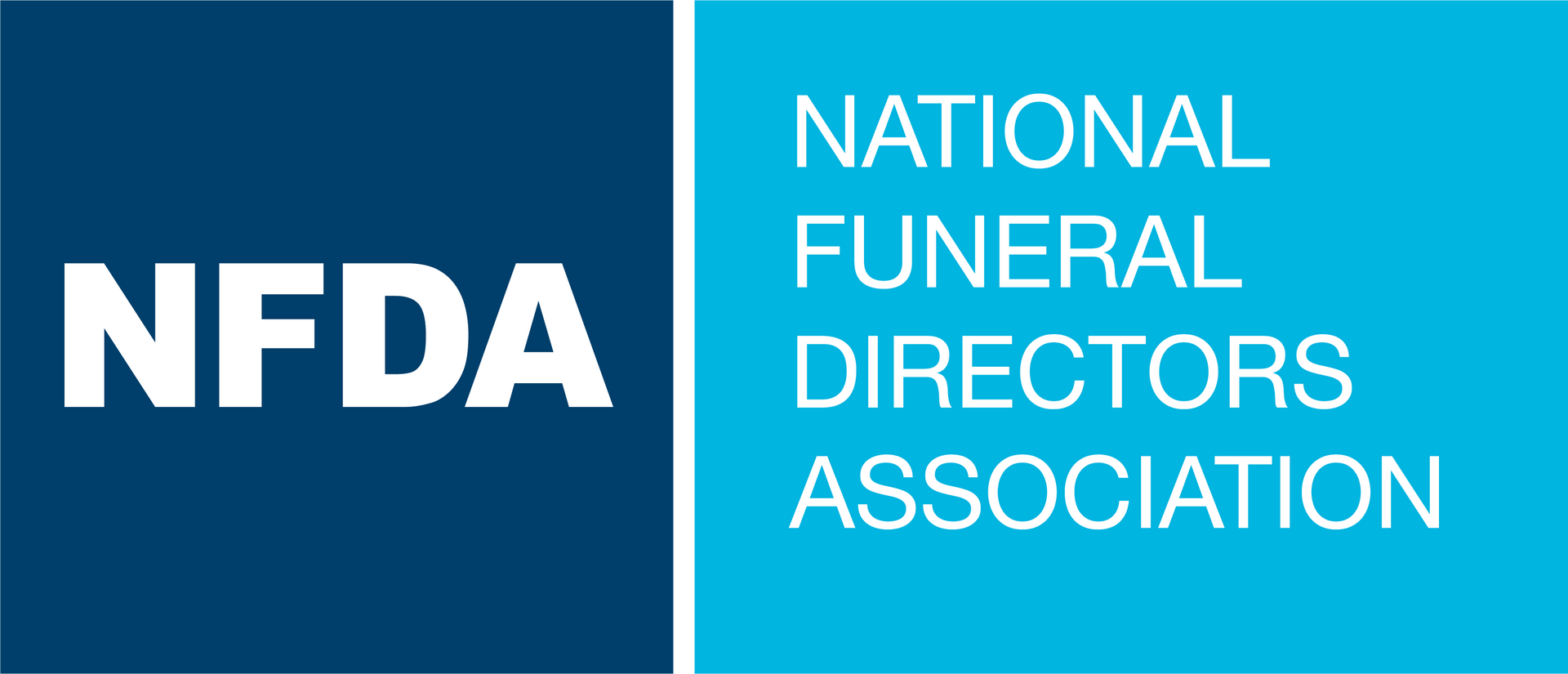Resources
Frequent Questions
Click on the questions below to reveal each respective answer.
Intro
Pre-Pay
Next of Kin
Legacy Contact
Irrevocable Funeral Trust
Emergency Contact
Authorization For Final Disposition
Thank You Cards
POA
Funeral Procession
Notifications
Pre Planning
-
Why have a Funeral?
Funerals play a significant role in comforting individuals who are grieving the loss of a loved one. They create an environment of care and support, providing a space for surviving family members and friends to come together, express their thoughts and emotions about death, and take the initial steps towards healing. Funerals hold a traditional significance in acknowledging the finality of death. They are recognized as ceremonial events where the living demonstrate their respect for the deceased and assist the bereaved in initiating the grieving process.
Even in the case of cremation, it is possible to have a complete funeral service. By organizing a personalized ceremony or service, one can commence the healing journey. Coping with the anguish of loss is never easy, but a meaningful funeral or tribute can aid in this process.
-
What services do funeral directors perform?
The funeral director's job is to assist the bereaved in various ways to help them through the loss of a loved one. A funeral director provides bereavement and consolation services for the living, in addition to making arrangements for the cremation, burial, and memorial services for the deceased. He fulfills the role of funeral arranger, funeral director, funeral attendant, and embalmer.
The following list is not all-inclusive, but describes some of the major tasks of a funeral director:
- Removal and transfer of the deceased from the place of death to the funeral home
- Professional care of the deceased, including embalming, casketing, and cosmetology
- Consulting with family to make arrangements for the funeral service
- Filing certificates, permits, and other required forms
- Obtaining copies of the death certificate
- Arrangements with the cemetery, crematory, or other places of final disposition
- Creates and publishes the obituary
- Arrangements for clergy, music, flowers, transportation, pallbearers, and special fraternal or military services
- Directs and manages the funeral service and the funeral procession
- Assists the family with death-related claims, including Social Security, VA insurance, grief counseling
-
What to do when a death occurs?
The funeral home will assist in coordinating arrangements with the cemetery, ensuring a smooth process.
To fulfill the State's vital statistic requirements, please provide the following information:
- Birth date
- Birthplace
- Father's name
- Mother's name
- Social Security number
- Veteran's discharge or claim number
- Education
- Marital status
Contact your clergy to discuss and decide on the time and location of the funeral or memorial service. This can be conveniently arranged at the funeral home.
The funeral home can guide you in determining the number of copies of the death certificates you will need and can handle the ordering process for you.
Create a list of immediate family members, close friends, and employer or business colleagues. Notify each of them by phone.
Choose an appropriate memorial or organization to which gifts may be made in honor of the deceased, such as a church, hospice, library, charity, or school.
Gather obituary information that you would like to include, such as age, place of birth, cause of death, occupation, college degrees, memberships, military service, outstanding achievements, and a list of immediate family survivors. Also, specify the time and location of the services. The funeral home typically writes the article and submits it to the newspapers (the newspaper will accept a picture if provided and return it intact).
Arrange for family members or close friends to take turns answering the door or phone and keep a careful record of calls. If the deceased was receiving Social Security checks via automatic deposit, notify the bank of the death.
-
When I call will someone come immediatly?
Certainly, if you request immediate assistance, it will be provided. If the family desires a brief period to be with the deceased and bid their final farewells, that is completely acceptable. Your funeral director will be available at a time that is suitable for you and your family.
-
Should I choose Burial or Cremation Service?
In the United States, the most common method of laying the deceased to rest is through burial in a casket, although entombment is also practiced. However, there is an increasing preference for cremation due to factors such as cost-effectiveness and the flexibility to hold a memorial service at a more convenient time in the future, allowing relatives and friends to gather.
When a funeral service is followed by cremation, there is no significant difference compared to a funeral service followed by burial. Typically, the cremated remains are placed in an urn before being respectfully placed in a final resting place. This can involve burying the urn, placing it in an indoor or outdoor mausoleum or columbarium, or interring it in a designated urn garden provided by many cemeteries. Alternatively, in accordance with state laws, the remains may be scattered.
-
Why are funerals so expensive?
In comparison to significant life events such as births and weddings, funerals are relatively affordable. Weddings, in particular, tend to be at least three times more expensive. However, due to the joyful nature of weddings, their costs are seldom scrutinized. It's important to recognize that a funeral home operates as a labor-intensive business, available around the clock, and equipped with extensive facilities like viewing rooms, chapels, limousines, hearses, and more. These necessary expenses are incorporated into the overall cost of a funeral.
A traditional funeral involves a number of services that add to the total cost. Besides a non-declinable basic services fee, other charges may include removal/transfer of the body to the funeral home; embalming; other preparation of the body; use of facilities and staff for viewing; use of facilities and staff for the funeral ceremony; use of a hearse, service car, or van; a basic memorial printed package; metal casket, a vault or grave liner, and purchase of a cemetery plot.
-
What is the purpose of a funeral?
A funeral or memorial service provides an opportunity for the living to show respect for the deceased and pay tribute to their life. It provides a framework to freely and openly express our beliefs, feelings, and thoughts about the death of our loved one. It gives us permission to grieve our loss, share in solidarity, and gain strength from others who are experiencing the same loss.
-
What are the choices for funeral services?
The four main types of funeral services include the traditional funeral service, the memorial service, the committal service, and the affirmation or celebration of life service.
-
Can you still have a funeral if you choose cremation?
Yes, cremation or burial is merely the disposition of the body. Funeral services are to honor and remember your loved one, regardless of disposition.
-
Do I have to make different funeral arrangements if I chose cremation?
The way you choose to honor and remember a life depends entirely on your preferences. Opting for cremation offers greater flexibility when arranging funeral and cemetery services. You have various options available, such as having a funeral service before the cremation, a memorial service during or after the cremation with the urn present, or a committal service during the final placement of the cremated remains. These funeral or memorial services can be held in a place of worship, a funeral home, or a dedicated chapel at the crematory. The choice is yours, allowing you to create a meaningful tribute in a location that holds significance for you and your loved ones.
-
What can be done with cremated remains?
Cremation offers a wide range of options to consider. The cremated remains, also known as cremains, can be interred in a cemetery plot through earth burial. Alternatively, they can be kept by a family member in an urn, scattered on private property, or at a location that held significance for the deceased. It is important to verify local regulations regarding scattering in public places, and your funeral director can assist you with this.
In the present day, there is a diverse array of memorial options available to choose from. Memorialization has been a cherished tradition for centuries. A memorial serves as a tribute to the life that was lived and creates a focal point for remembrance, while also leaving a record for future generations. The type of memorial you select is a deeply personal decision, allowing you to create a meaningful tribute that resonates with your unique preferences and the memory of your loved one.
-
What is memorialization for a cremation?
One option you have is to select ground burial for the urn. In such cases, you can typically choose between a bronze memorial or monument as a marker. Additionally, many cemeteries provide cremation niches within columbariums. These niches offer the beauty of a mausoleum setting while allowing for the above-ground placement of remains. Another possibility is the availability of scattering gardens in numerous cemeteries. These designated areas within the cemetery provide a tranquil and serene garden setting where family and friends can gather to reflect and find solace.
-
If I am cremated, can I be buried with my spouse even if he or she was in a casket?
Yes, depending on the specific policy of the cemetery, it may be possible to conserve a grave space by opting to have the cremated remains interred above the casketed remains of your spouse or in the adjacent space. Numerous cemeteries accommodate the interment of multiple cremated remains within a single grave space, providing a suitable option for families seeking to make efficient use of the available burial space. It is advisable to consult with the cemetery authorities to understand their specific guidelines and options regarding the interment of cremated remains.
-
What information should I bring to the arrangement conference?
- Advance Directives - If the deceased left any written advance directives concerning the disposition of his remains and memorialization, you need to bring them with you. These instructions may be found in a will, or there may be a formally witnessed disposition directive, funeral pre-arrangements, or a pre-need contract.
- Military Discharge Papers
- Details on any cemetery property owned by the deceased or the family (grave plot, columbarium space, etc.)
- Recent photograph of the deceased and any personal effects that you wish to be included in the viewing or burial
- Specific information on the deceased:
- Full legal name
- Address
- Marital status
- Social Security number
- Date of birth
- Place of birth (city and state)
- Educational history (number of years of schooling)
- Armed Forces service dates and serial number
- Occupation or profession
- Parent's names, including mother's maiden name
- Next of kin and other survivors
-
Why have a public viewing?
A viewing is an integral component of various cultural and ethnic traditions. Numerous experts in grief counseling endorse the belief that viewing plays a vital role in the grieving process as it assists the bereaved in acknowledging the reality of death. It is also considered beneficial for children to participate in viewing, provided that they are adequately informed about the process and participation remains voluntary.
-
What is the reason for embalming?
Embalming serves the purpose of both sanitizing and preserving the body. By undergoing embalming, it becomes possible to extend the duration between death and the final disposition, providing family members with ample time to organize and take part in a service that brings them the most solace and comfort.
-
Does my loved one have to be embalmed, according to law?
According to the Federal Trade Commission, embalming is generally not a legal requirement, except in specific circumstances. However, there may be a need for embalming if you opt for particular funeral arrangements, such as a funeral with viewing. If you prefer not to have embalming, you typically have the right to choose alternative arrangements that do not mandate its use, such as direct cremation or immediate burial, and you should not be obligated to pay for embalming in such cases.
-
What do I need to know about income tax when I lose a spouse?
The uncertainty surrounding income tax matters can amplify the stress already felt due to the loss of a spouse. It is crucial to schedule a meeting with your family attorney and/or tax advisor at the earliest opportunity to carefully assess your individual tax and estate situation. Prior to the meeting, prepare a comprehensive list of questions related to your concerns. In the event that you don't have a personal attorney or tax advisor, you can contact the IRS toll-free at 800-829-1040 to obtain answers to specific tax-related inquiries. Taking these proactive steps will help you navigate the complexities of tax matters and gain the necessary clarity during this challenging time.
-
Is there financial help if I need it?
There are several avenues to explore when considering options for managing funeral expenses:
- Determine eligibility for entitlements: Contact the Social Security Administration, Department of Veterans Affairs, and your State Fund to determine if the deceased person qualifies for any financial assistance towards funeral costs. Certain entitlement programs may provide support if the eligibility criteria are met.
- Review insurance policies: Take a thorough look at all insurance policies held by the deceased, including life insurance. Some policies may have coverage provisions specifically for funeral-related expenses, which can help alleviate the financial burden.
- Seek assistance from local charities: Research local non-profit organizations and churches that provide financial aid for funeral expenses. These charitable entities may offer support to individuals and families in need during difficult times.
- Discuss cremation options with the funeral director: Engage in a conversation with your funeral director regarding cremation as a potentially more cost-effective alternative. Depending on the specific choices made, cremation services can often be a more affordable option compared to traditional burial.
Exploring these options can help you navigate funeral costs and potentially find suitable solutions that fit within your financial means.




